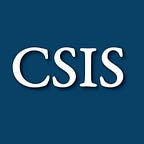The Trump administration’s good week on Asia policy
By John Schaus | July 3, 2017 on CSIS.org
Don’t call it a rebalance, but in just five days last week, the Trump administration made a statement about U.S. priorities and objectives in the Asia-Pacific. With four actions, the administration made clear that the United States will remain fully engaged in pursuing its interests in Asia, and will do so with allies and partners without concern for criticism.
The first action was hosting Prime Minister Modi of India for a meeting at the White House on Monday afternoon. Even beyond the symbolism of Prime Minister Modi hugging President Trump three times, the U.S.-India relationship is on a solid footing. The meeting reaffirmed cooperation between the United States and India on issues such as counterterrorism, narcotics trafficking, the importance of rule of law, civilian nuclear power, and people-to-people exchanges. Further, the United States offered India 22 long-range unmanned aerial vehicles for maritime surveillance. Such a capability would greatly enhance India’s ability to monitor traffic in the Indian Ocean, thereby expanding its ability to contribute to regional security. If India accepts the offer, it could mark the first sale of that type of large, unmanned aircraft by the United States to a non-ally.
The Prime Minister’s visit was only the first part of a longer effort. On Thursday, the Trump administration made two announcements, both of which drew condemnation from Chinese officials: the State Department announced a $1.4 billion dollar arms sale to Taiwan; and the Treasury announced sanctions against a Chinese bank, a Chinese shipping company, and two individuals for their close ties to North Korea’s nuclear program. Either of these actions alone would be enough to draw criticism from Chinese officials for U.S. interference in Chinese domestic issues. China’s embassy in Washington has already said the arms-sale ‘violated the consensus’ reached during the Trump-Xi meeting at Mar-a-Lago in April.
Finally, on Thursday and Friday, President Trump hosted the President of South Korea, Moon Jae-in. Trump’s meeting with Moon was the most complex element of Asia week — as Trump sought to begin the renegotiation of the Korea-U.S. Free Trade Agreement (KORUS FTA) while reaffirming the United States’ commitment to defend Korea from North Korean aggression and Chinese coercion — and it seems to have gone as well as could be expected. The lack of a joint statement between the two presidents is suggestive of the difficulty the two staffs had on reaching agreement in advance of the meetings (particularly when juxtaposed with the expansive U.S.-India joint statement following Monday’s meeting with Modi).
President Moon’s comments at CSIS on Friday evening following his meetings at the White House made clear that on key security issues regarding North Korea, he and President Trump were able to achieve a common perspective. Most notably, the expressed agreement between the two leaders that dialogue with North Korea is the initial goal — based on “optimal circumstances” that would have as one element North Korea freezing its nuclear program. Moon was clear, however, that dialogue for its own sake would not work. He stated that the purpose of any dialogue would be permanent dismantling of North Korea’s nuclear program. Both leaders’ agreement on that sequence and objective is an important achievement, and one that will enable the United States and South Korea to work together to reduce the risk of conflict in the region while working together to seek greater efforts from China and real commitment from North Korea.
Within a single week, the Trump administration signaled the strengthening of ties with a rising India, the continued importance of longstanding commitments such as the Taiwan Relations Act, its willingness to risk China’s criticism for defending U.S. interests and regional security in sanctioning organizations that give aid to North Korea’s nuclear program, and reaffirmed U.S. steadfastness in working with South Korea to defend itself. Though not a perfect week — announcing renegotiation of a trade agreement with a treaty ally under both nuclear threat and economic coercion for acts of self-defense does not contribute to regional security — on balance the administration demonstrated U.S. willingness to uphold U.S. interests and work with both allies and partners to make the region more secure.
John Schaus is a fellow with the International Security Program at the Center for Strategic and International Studies (CSIS) in Washington, D.C.
Commentary is produced by the Center for Strategic and International Studies (CSIS), a private, tax-exempt institution focusing on international public policy issues. Its research is nonpartisan and nonproprietary. CSIS does not take specific policy positions. Accordingly, all views, positions, and conclusions expressed in this publication should be understood to be solely those of the author(s).
© 2017 by the Center for Strategic and International Studies. All rights reserved.
Originally published at www.csis.org.
